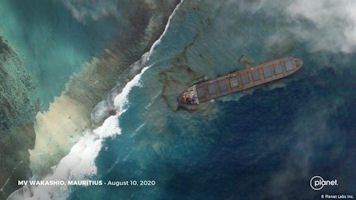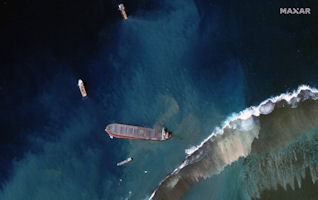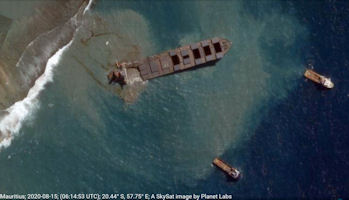Mauritius - Economy
 Mauritius has a stable and competitive economy, with a GDP of USD 11.8 billion and per capita GDP over USD 9,400 in 2016. The economy grew by 3.8 percent in 2016 and IMF estimates it will continue to grow at a moderate rate of 3.8 to 4 percent in the medium term. The inflation rate decreased from 1.3 percent in 2015 to 1 percent in 2016 and is expected to rise to 2.5 percent in 2017, mainly due to the upward trend in oil prices. The unemployment rate decreased from 7.9 percent in 2015 to 7.3 percent in 2016, although it is higher among women and youth. According to the World Bank’s 2017 Ease of Doing Business Index, Mauritius ranks first in Africa and 49th worldwide (out of 190 countries).
Mauritius has a stable and competitive economy, with a GDP of USD 11.8 billion and per capita GDP over USD 9,400 in 2016. The economy grew by 3.8 percent in 2016 and IMF estimates it will continue to grow at a moderate rate of 3.8 to 4 percent in the medium term. The inflation rate decreased from 1.3 percent in 2015 to 1 percent in 2016 and is expected to rise to 2.5 percent in 2017, mainly due to the upward trend in oil prices. The unemployment rate decreased from 7.9 percent in 2015 to 7.3 percent in 2016, although it is higher among women and youth. According to the World Bank’s 2017 Ease of Doing Business Index, Mauritius ranks first in Africa and 49th worldwide (out of 190 countries).
Since achieving independence in 1968, Mauritius has made a remarkable economic transformation from a mono-crop economy based on sugarcane production to a diversified economy driven by export-oriented manufacturing (mainly textiles), tourism, and financial and business services, information and communication technology, seafood processing, real estate and education/training. With sluggish growth in the past several years, the government of Mauritius has tried to stimulate economic growth in four areas: serving as a gateway for investment into Africa, increasing the use of renewable energy, developing smart cities, and exploring activities related to the ocean economy.
Government policy in Mauritius is firmly centered on promoting foreign and domestic investment, having signed Double Taxation Avoidance Agreements with 50 countries and maintaining a legal and regulatory framework that keeps Mauritius highly-ranked on “Ease of Doing Business” and good governance indices. In recent years Mauritius has been especially intent on attracting foreign direct investment from emerging economies, as well as courting more traditional markets like the UK, France and the U.S. In support of this, the government highlights its democratic tradition and good governance.
With 330km (200 miles) of coastline, Mauritius' sandy beaches (perfect for swimming) are its key attraction. Mauritius’ beaches have great reputation all over the world for their surreal beauty and natural landscapes. Mauritius boasts of thriving tourism, owing all to its tropical climate, fantastic beaches and blossoming flora fauna. From the serene sites to enthralling fun getaways, Mauritius beaches are known for their exclusive experiences. The sparkling beaches offer a plethora of water activities and tranquil surroundings perfect to bask in the lap of nature.
Tamarin Beach is in the Tamarin Village of Mauritius, a beautiful village that’s surrounded by hills near Black River on the west coast. It is said to be the most beautiful beach in Mauritius for its popularity among the locals and tourists. Once known as Santosha Bay, Tamarin Beach in the present times is also called the ‘Surfer Beach’. It offers the perfect waves for surfing and sea-bathing. Its black sand and powerful current make it a super fun beach for sea lovers.
After the Japanese-owned bulk-carrier MV Wakashio struck a reef off Mauritius on 25 July 2020, a prolonged period of inaction threatened to become an ecological disaster. Carrying nearly 4,000 metric tons of fuel oil, the tanker ran aground near Pointe d'Esny. Local authorities failed to do enough to prevent what is now the worst ecological disaster in Mauritius. They started putting buoys and barriers to protect the shore only after the first signs of the oil spill became apparent. By 11 August 2020, over two weeks after the accident, more than 1,000 tons of fuel had leaked from a crack in the vessel’s hull, with the Mauritius government declaring a state of environmental emergency. The vessel had grounded in a very sensitive zone which includes the Blue Bay Marine Park, Iles aux Aigrettes, and the Ramsar sites.
Salvage crews successfully pumped all the fuel from the tanks of a giant cargo ship which ran aground off Mauritius, the prime minister said 12 August 2020, preventing another massive oil spill into the pristine waters. Mitsui OSK Lines operates the MV Wakashio, which ran aground on July 25 just off the coast of Mauritius, carrying 4,000 tonnes of fuel that has been seeping into the pristine coral-filled waters of the island nation. Both the operator and the vessel's owner Nagashiki Shipping have apologised for the spill, and pledged to help mitigate the damage. The Tokyo-based company traces its history back to 1878, when trading house Mitsui and Co. began operating a steamboat between Nagasaki and Shanghai. In 1884, the shipping operation was devolved to a firm named Osaka Shosen Kaisha Lines, or OSK lines, under the umbrella of the Mitsui zaibatsu, or conglomerate.
The operator of the Japanese-owned bulk carrier confirmed 15 August 2020 that the vessel has split in two. The firm said nearly all the 3,000 tons of bunker oil remaining onboard had already been recovered. It also said most of the estimated 100 tons of lubricant oil and residual oil onboard had been collected by Friday, but some oil is believed to have leaked out as the vessel split. It explained that an oil fence has been installed around the ship to prevent the oil from reaching the shore, and the spilled oil is being collected. The firm also said it believes about 1,000 tons of oil leaked into the sea, and only around half of it has been recovered so far.
Mauritius has one of the most successful and competitive economies in Africa; 2010 GDP at market prices was estimated at $9.5 billion and per capita income at $7,420, one of the highest in Africa. The economy is based on tourism, textiles, sugar, and financial services. In recent years, information and communication technology, seafood, hospitality and property development, healthcare, renewable energy, and education and training have emerged as important sectors, attracting substantial investment from both local and foreign investors.
Mauritius’s economy suffered at the turn of the millennium as longstanding trade preferences in textiles and sugar--the foundation of its growth strategy--were phased out. In 2005, the government embarked on an economic reform program aimed at opening up the economy, facilitating business, improving the investment climate, and mobilizing foreign direct investment and expertise. These reforms accelerated the rate of growth, reduced unemployment, and sped up the pace of diversification of the economy through the development of new sectors. All of these factors contributed to absorb the shock of the global economic recession as well as the Eurozone crisis and set the stage for Mauritius to resume accelerated growth in 2010. GDP growth is forecast at 4.2% in 2011, compared with 4.1% in 2010.
Mauritius has built its success on a free market economy. According to the 2010 Index of Economic Freedom, developed by the U.S.-based Heritage Foundation and the Wall Street Journal, Mauritius leads Sub-Saharan Africa in economic freedom and is ranked 12th worldwide. The report’s ranking of 183 countries is based on measures of economic openness, regulatory efficiency, rule of law, and competitiveness. For the third consecutive year, the World Bank’s 2011 Doing Business report ranks Mauritius first among African economies (20th worldwide, out of 183 economies in all) in terms of overall ease of doing business. The government’s objective is for Mauritius to rank among the top 10 most investment- and business-friendly locations in the world.
Mauritius has a long tradition of private entrepreneurship, which has led to a strong and dynamic private sector. Firms entering the market will find a robust legal and commercial infrastructure. Mauritius has a well-developed digital infrastructure and offers state-of-the-art telecommunications facilities including international leased lines and high-speed Internet access. Government policy is to act as a facilitator to business, leaving production to the private sector. However, it still controls key utility services, including electricity, water, waste water, postal services, and television broadcasting, directly or through parastatals. The government also controls, through the State Trading Corporation, the import of what it deems to be strategic products such as rice (only non-basmati or other non-luxury rice), wheat flour, petroleum products, and cement.
|
NEWSLETTER
|
| Join the GlobalSecurity.org mailing list |
|
|
|









